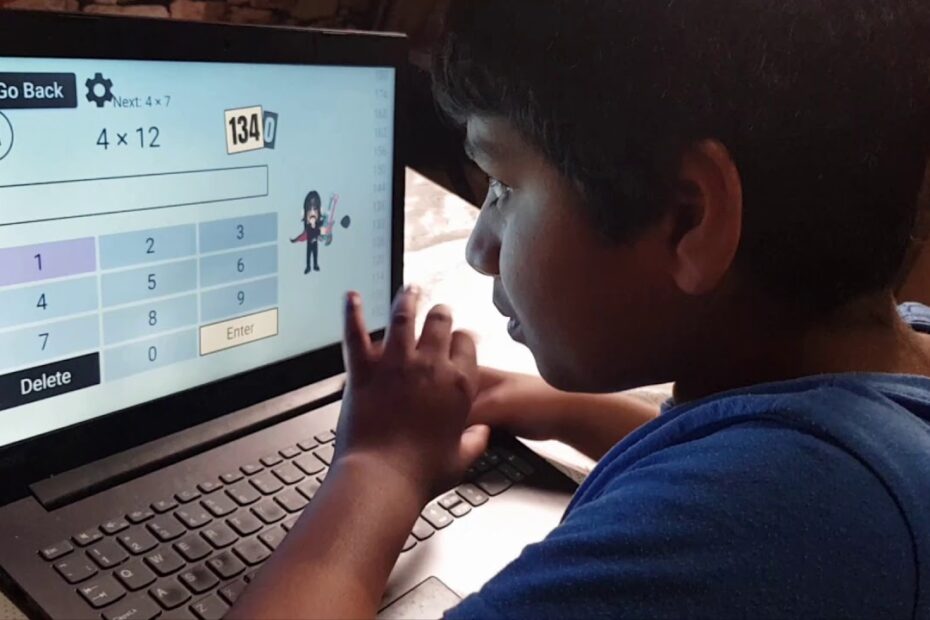Times Table Rockstars: Gamified Learning Tool or Overhyped Memorization Trap?
Rockstar or Robot? The Great Math Debate
Is Times Table Rockstars the Elvis of arithmetic or just a flashy karaoke machine for numbers? On one hand, it’s got kids strumming air guitars while shouting “7×8=56!” like they’re headlining Glastonbury. Avatars! Leaderboards! Glittery virtual coins! It’s a carnival of engagement, turning multiplication drills into something resembling a disco-fueled math rave. But critics argue it’s just memorization wearing a sequined jacket. Sure, you’ll know 9×6 faster than you can say “encore,” but does understanding *why* 9×6=54 matter? Or are we training a generation of human calculators with killer stage presence?
The Case for the Trap: When the Music Stops
Detractors claim TTRockstars is less “innovative learning” and more “math karaoke” – you’re just belting out facts without reading the room (or the concepts). Imagine a world where kids can rap 12×11=132 but freeze like startled meerkats if asked to *use* it in a word problem. Rote memorization has its perks, but is it preparing students for algebra’s mosh pit? Critics whisper: “Cool avatar, but can your rockstar explain distributive properties, or just shred through flashcards?”
Leveling Up: The Hybrid Hero Approach
Maybe the answer lies in a math remix. Use TTRockstars to smash through basic facts like a guitar solo, then layer in conceptual understanding during class. Think of it as the mullet of pedagogy: party in the front (gamified speed drills), business in the back (applied problem-solving). After all, even rockstars need to learn sheet music. Just don’t let the sparkle overshadow the substance – unless we’re okay with future engineers who can calculate load-bearing walls *at lightning speed* but forget to carry the 1.
The Dark Side of Times Table Rockstars: 5 Controversies Parents Should Know
1. The “Competition Anxiety” Epidemic
Who knew memorizing 7×8 could trigger existential dread? Some parents report their kids developing ”leaderboard panic”—cold sweats when they drop a rank, or frantic 3 a.m. practice sessions to out-multiply “MathMegan42.” Turns out, turning arithmetic into a Gladiator-style showdown might not be the zen life skill booster we imagined. Cue tiny rockstars sobbing over misplaced apostrophes in their rockstar avatars’ names.
2. Screen Time… or Screen Crime?
Yes, it’s “educational,” but when little Timmy starts referring to family dinners as “intermissions between gigs,” you’ve got a problem. Critics argue TTR transforms kids into pixelated math zombies, muttering times tables in their sleep and side-eyeing parents who suggest ”maybe go touch grass?” Bonus points when they demand Robux to “upgrade their rockstar gear” mid-meltdown.
- Controversy #3: The “Drill & Kill” Debate
Is rote learning back? Or are we just trapping kids in a Groundhog Day of 6×7? While TTR’s gamification dazzles, some educators warn it’s as repetitive as a broken record (or a rockstar’s greatest hits album). Sure, fluency matters—but at what cost? *Cue 10,000th rendition of “I Wanna Rock ‘n’ Roll All Nines” playing faintly in the distance.*
4. Data Tracking: Big Brother or Best Buddy?
TTR knows your child’s math weaknesses better than you do. The platform’s progress analytics—while helpful—have sparked paranoia. Are they selling data? Training AI overlords? Or just judging your parenting because Ava still confuses 4×5 with 5×4? Either way, it’s a dystopian math-opera, and we’re all extras.
- Controversy #5: The “Pay-to-Play” Backlash
Free to play… unless you want the good guitar emojis. Parents rage over ”microtransaction madness,” where Johnny’s self-esteem crumbles because his friend bought a “Diamond Division Bundle.” Suddenly, times tables aren’t about learning—they’re about who’s got the shiniest virtual merch. Spoiler: It’s always MathMegan42.
